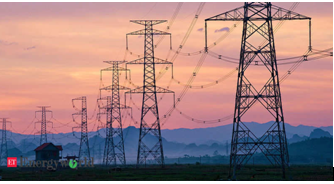i INP-WEALTHPK
Amir Saeed
The government is scrutinizing K-Electric’s tariff to ensure fair cost allocation, challenging the disproportionate charges that impact consumers and public finances. In an interview with WealthPK, a spokesperson for the Ministry of Energy highlighted that although various companies manage electricity distribution in Pakistan, K-Electric is unique in that it is responsible for the generation, transmission and distribution of electricity.

The National Electric Power Regulatory Authority (NEPRA) holds the exclusive authority to determine K-Electric’s tariff. “To set these tariffs, K-Electric submits a comprehensive petition to NEPRA detailing its expected losses, projected bill recovery percentages, cost of working capital, operational expenses, and profit margin, along with the annual value of electricity generated from its power plants.”
Importantly, K-Electric demands a per-unit price based on “return on equity.” NEPRA then places these details before the public and holds hearings before making a decision, which fixes the tariff rate for seven years. The spokesperson conveyed several key concerns, most notably, a line loss allowance of 13.9% granted by NEPRA, which is excessive when compared to the 8-9% range indicated by NEPRA’s reports, especially after factoring in the law and order challenges in the region.
The spokesperson also talked about the power company’s inability to recover 6.5% of the billed amounts and proposed that this shortfall be passed on to the consumers or the government. The tariff consists of roughly eight to nine components, all of which the government requested NEPRA to reconsider and reduce in the review petition.
The spokesperson highlighted the severe financial implications of this review. If accepted, the government will save Rs650 billion over the next seven years. However, if the review is rejected, the amount in question will have to be paid to the company. “The current system in the country allows companies failing to recover their expenses to shift the cost either to the consumers or to the government. For example, last year alone, the government paid Rs175 billion to K-Electric as a tariff differential subsidy, the funds which could have been invested in numerous development projects if K-Electric had demonstrated better efficiency and performance in the 20 years since its privatization.”
Concluding, the spokesperson said the current position demonstrates the government's dedication to upholding fairness, efficiency, and transparency in the regulation of electricity tariffs, ultimately serving the best interests of consumers countrywide.
Credit: INP-WealthPk



